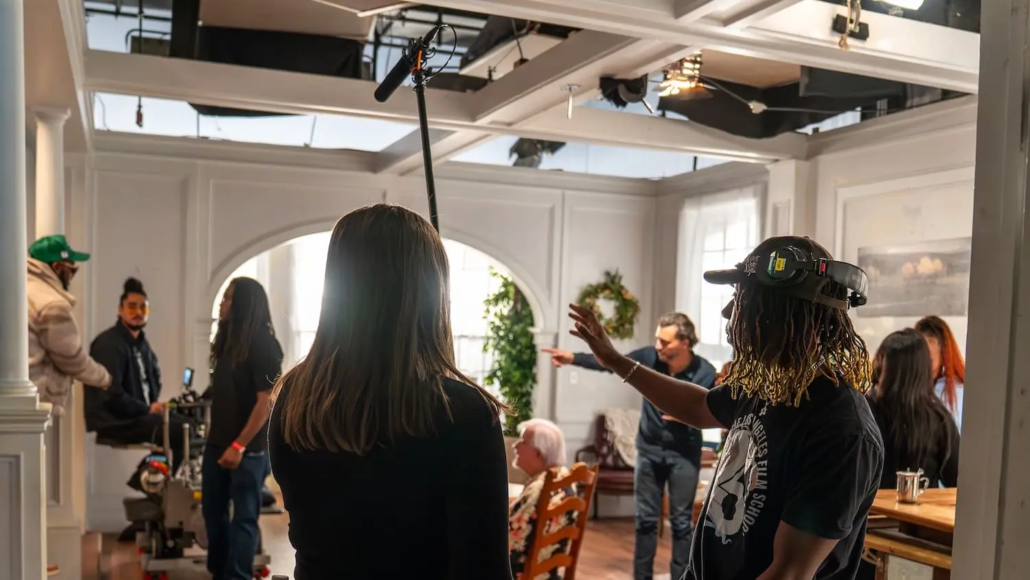Navigating the Set: Essential Etiquette for Film Crew Newcomers

Stepping onto a professional film set is an exhilarating experience, but it comes with a strict, often unspoken, set of rules – setiquette. For newcomers, understanding and adhering to these protocols is crucial for a successful career. To help demystify these rules, we asked film instructor Jay Zabriskie about the most critical areas where green crew members often stumble, from noise levels to the complex hierarchy, so you can master the set’s unique working environment.
Silence is Golden: Managing Noise Levels
The most frequent etiquette breach observed from new crew members is the simple act of loud talking on the set. A working set is a constant recording environment, and extraneous noise can ruin expensive takes. This is why every newcomer would benefit from a basic lesson in keeping quiet. The fundamental rule is to communicate in low tones and, the moment the call “Quiet on set!” is heard, all chatter and movement must cease until the director calls “Cut.”
Understanding the Set’s Hierarchy
Filmmaking runs on a strict chain of command, which ensures efficient communication and control. The ultimate authority is the Director, with the First AD (Assistant Director) serving as the second in command, managing the immediate action and flow of the set. Understanding this structure is essential for professional conduct. As Jay advised, “The Director is the top. Their First AD would be next in command in terms of control of the set.” Questions and requests must always flow up through the proper departmental channels, never bypassing one’s direct superior to approach the highest ranks.
The Punctuality Paradigm: Time is the Ultimate Commodity
Nothing is more precious on a film set than time; it is literally money. Therefore, punctuality is paramount, and every minute is geared toward “making the day,” or completing the scheduled shots. The industry adheres to a severe standard, often encapsulated in the warning: “If you are early you are on time; if you are on time, you are late; if you are late you are fired.” While firing may depend on circumstances, consistent tardiness is a career killer. Crew members must strive to be in position and ready to work before their official call time.
Interacting with Talent and Maintaining Focus
Actors, or “talent,” require focus and space to deliver their performance. The standing rule for most crew is to maintain a professional distance. According to Zabriskie: “If you are not the director, leave them alone. Especially newcomers.” Unless your job specifically requires it (like a wardrobe check, makeup touch-up, or microphone adjustment), respect their concentration.
This focus extends to your personal devices. The protocol for using phones is strict – they should be set to silent or off and kept out of sight during filming. A ringing phone is a costly interruption. Being “present” – fully attentive – is equally vital for both safety and efficiency.
The Hands-Off Policy and Professional Conduct
Beyond noise and timeliness, key professional disciplines dictate smooth set operations. This includes the absolute Hands-Off Policy. If it’s not your department, don’t touch it. If you are new even to your own department, the instruction is to ask before touching. Always ask. Additionally, never guess or stall; If you don’t know where something is, ask. Don’t waste time trying to fake your way through. Finally, maintain a focus on your task and respect the vision of the leadership: Unless you are in charge of it, have an opinion on nothing.
Setiquette Cheatsheet: Core Rules for Success
- Maintain silence near active set areas, especially during “Quiet on Set!”
- Direct communication through your immediate supervisor.
- Be early. Your call time is when you must be ready to work.
- Do not approach or distract actors unnecessarily.
- Do not touch any gear outside of your own department.
- Ask questions to save time; keep opinions to yourself.
Understanding the rules is one thing; consistently executing them in a high-pressure environment is another. While it can seem like a lot to remember, these practices become second nature with enough on-set experience. Our film degrees are specifically designed to immerse you in professional set conditions, turning theoretical knowledge like this setiquette guide into practical, habitual skills. We teach the technical craft and the professional discipline required to excel.
Ready to move from reading the manual to running the set? Discover which of our film programs is right for you today!
